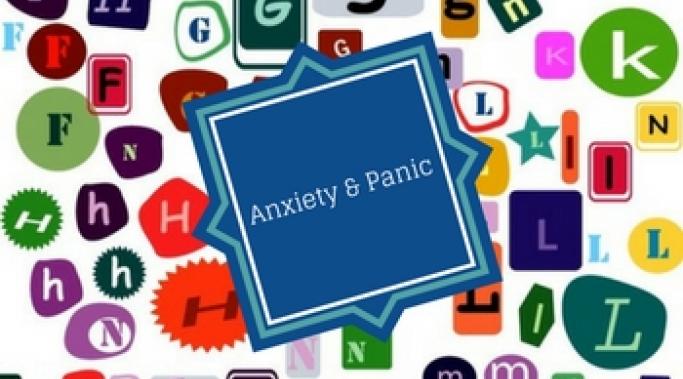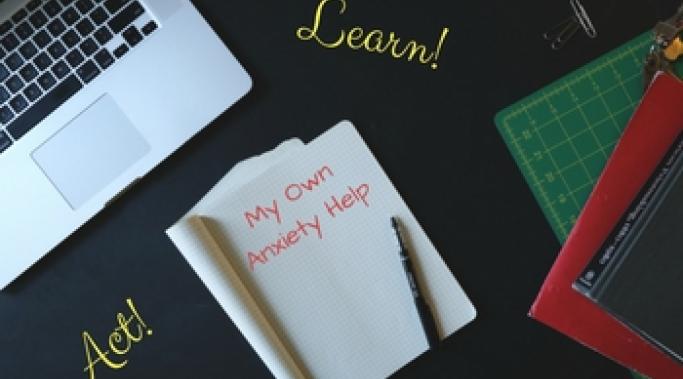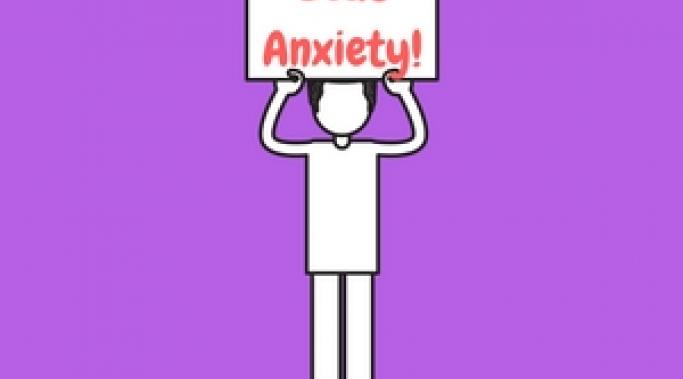Undoubtedly, social anxiety interferes with life and can ruin your fun (Social Anxiety: A Spectrum from Shy to Avoidant). Living with social anxiety means being on edge, unable to relax or let our guard down. Experiencing social anxiety means living in fear of doing something embarrassing or being judged as incompetent, inadequate, "less than." Social anxiety creates racing thoughts that are relentlessly self-critical. The anxiety, fear, and sheer exhaustion of all of this can make us shy away from people and social situations. In doing so, is social anxiety ruining your fun?
Anxiety Management – Anxiety Schmanxiety
Our world, it seems, is becoming increasingly toxic; handling anxiety in this fearful, stressful environment can sometimes seem impossible. Negativity swirls around us like dead leaves tossed about in a gust of wind. (And it can feel like the wind picks up not just dead leaves but gravel, pelting us with the gravel; and it can feel like the wind is so violently strong that we can’t move.) It’s not uncommon right now to feel alone in that wind storm because everyone else is trapped in their own anxious storms (Despite Paralyzing Anxiety, There Are Ways To Move). Are humans still driven by kindness, or are they driven by hate toward those who disagree with them? It can be difficult to handle anxiety in a fearful, stressful, toxic world.
When you're caught in the roiling storm of anxiety, often the best way to calm that anxiety is to step back and observe. The fear, worry, and apprehension that are part of anxiety can become strong and debilitating when we're up close and personal with an anxiety-provoking situation. Why do we need to step back and observe when our anxiety is intense, and how do we do it?
Anxiety and panic are complex mental health conditions that have a tremendous impact on our lives (Anxiety and Panic Attack Articles). Like most big things, anxiety and panic have their ABCs, their fundamental concepts that explain the essence of what they are. When young children first learn to read and write, they break down the task into the basic components of what they are about to tackle; they learn their ABCs. This approach is great for dealing with anxiety and panic, too. Armed with the ABCs of anxiety and panic, we can use what we know to tackle the problem.
Deciding to seek help for anxiety so you can take back your life but then being unable to find help for anxiety is incredibly frustrating (Types of Mental Health Doctors and How to Find One). For a variety of reasons, such as insurance problems, lack of qualified mental health professionals in an area, difficulty getting or keeping appointments, and more, mental health help isn’t always readily available. While ideally everyone would be able to receive medical and therapeutic help for anxiety, doing so isn’t necessary to treat and manage anxiety. There are things you can do when you can’t find help for anxiety.
Are you ready to live an anxiety-free life? You can actively take charge of this by writing your story of life without anxiety. Now is the perfect time to begin. At the time I’m writing this, we’re about to enter a brand new year. However, every single day is a new day with the promise of new beginnings, and you can write your story of a life without anxiety starting now, whenever “now” may be. Ready? Read on for more about how to use this new beginning to write your story and live an anxiety-free life.
Just as anxiety can happen at any time in life, it’s possible to conquer anxiety at any time by using the stages of development. The previous two articles explored the fact that all human beings progress through distinct developmental stages, each with its own tasks and risks of failure and anxiety (Anxiety Can Happen at Any Age: Child and Teen Anxiety; Anxiety in the Adult Years: Anxiety Can Happen at Any Age). By understanding what our main developmental tasks are, we can use those stages of development to conquer anxiety at any time in life.
Even in times of great struggle with anxiety disorders, there are signs that tell you that you’ll beat anxiety. By definition, any anxiety disorder is something whose symptoms cause significant distress, interfere in one or more areas of life (such as work, family, or social functioning), is difficult to control, and endures over time, usually for at least six months but often longer.1 Anxiety in any form, then, can be daunting. But take heart: when you’re feeling thoroughly stuck, look within yourself for these five signs that you will indeed beat anxiety.
To feel anxious but know intellectually that you shouldn’t really be experiencing anxiety is an incredibly frustrating experience. This frustration can increase both stress and anxiety as well as decrease self-efficacy, the belief in ourselves that we have what it takes to overcome challenges like anxiety and meet goals. To stop feeling anxious even when you know you shouldn’t is easier said than done—hence the irritation that comes when someone tells you to “just stop being anxious”. There is a way to bridge the gap between feeling anxious and knowing you shouldn’t.
If you find yourself anxious in many different situations, especially those that relate to your performance, behavior, or relationships with others, you might consider the possibility that you have unrealistically high standards for yourself. It’s not uncommon for people to hold themselves to high standards, and doing so can be motivating. Impossibly high standards, though, can make people anxious and interfere in their lives (How Not to Expect Too Much from Yourself). If your own high standards are making you anxious, there’s a way to reclaim your life.









